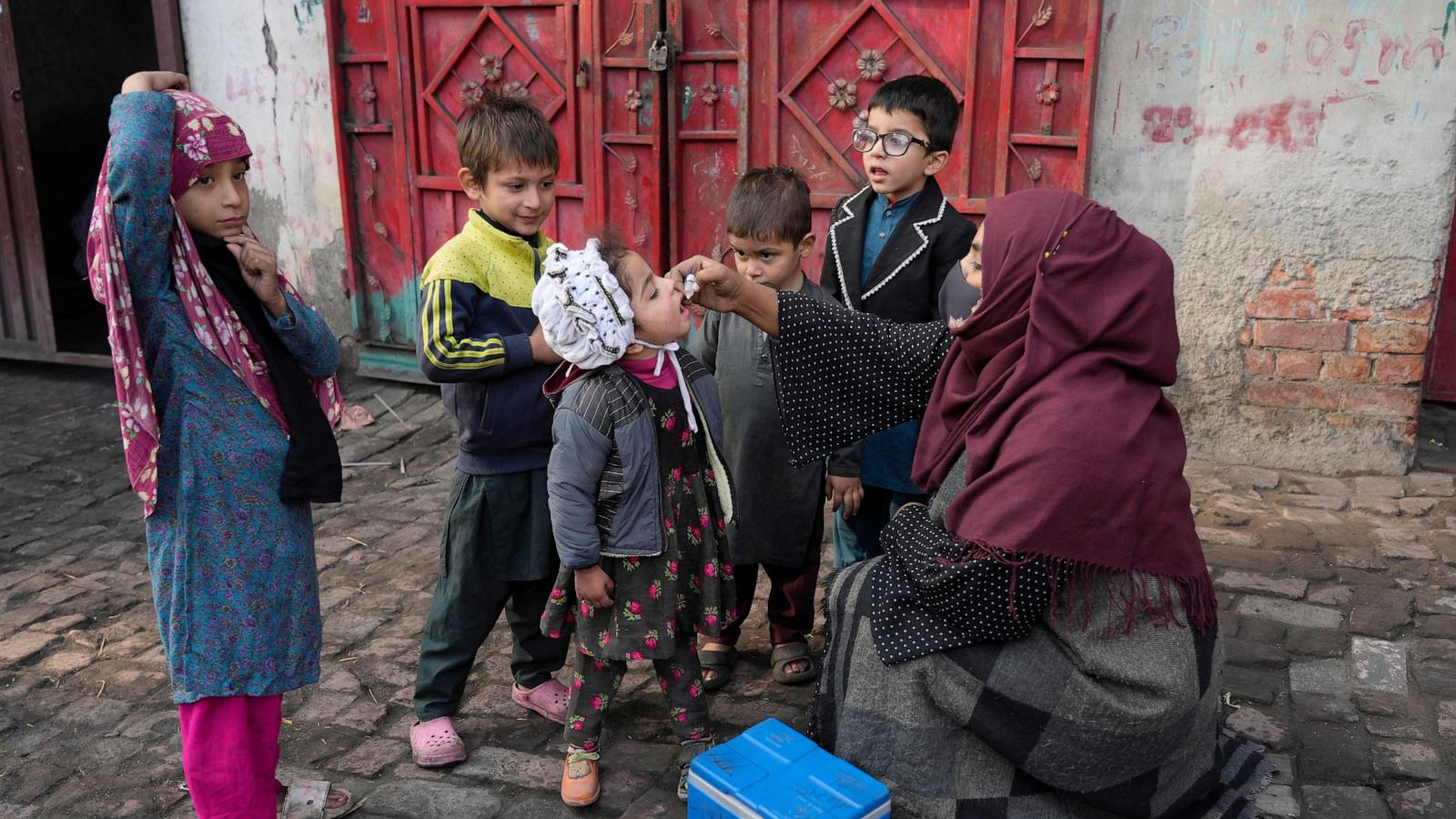Pakistan Polio Bombing: Three Police Officers Killed Protecting Health Workers
In a shocking and tragic turn of events, a roadside bomb exploded in Pakistan's restive northwest, claiming the lives of three police officers who were providing security to polio vaccination workers. This devastating attack, which also injured two other officers, highlights the extreme dangers faced by those working to eradicate this debilitating disease. The attack comes just a day after another incident involving gunmen firing upon a similar police escort, underscoring the growing threat to Pakistan's polio eradication efforts.
The Dangers of Polio Eradication in Pakistan
Pakistan, along with Afghanistan, remains one of the last strongholds of the poliovirus, a potentially fatal and paralyzing disease. The fight to eradicate polio is not without its challenges. The volatile political climate and the presence of militant groups significantly contribute to the dangerous conditions encountered by healthcare workers in Pakistan. Their daily commute through hostile terrains can be perilous and potentially fatal. In fact, over 200 polio workers and police officers have been killed since the 1990s, demonstrating the sacrifices made in the fight to wipe out polio. Pakistan's current anti-polio drive aims to immunize an estimated 45 million children; a commendable goal that risks the health and safety of frontline health professionals, making the ongoing vaccination campaign both ambitious and inherently dangerous.
A Look at Recent Events
The recent attack in Dera Ismail Khan, in Pakistan's Khyber Pakhtunkhwa province, adds to the already grim statistics. The officers were targeted on their way back to their stations following their protective duties. Similarly, another incident just the day before witnessed an attack on a police escort in Karak city, leaving one police officer dead and a health worker injured. Such acts of violence not only hinder polio eradication efforts but also deeply undermine health professionals’ confidence and public trust.
Who is Behind These Attacks?
The identity of the perpetrators behind these violent acts remains shrouded in mystery, with no group yet claiming responsibility for the attacks on these brave health professionals. These targeted assaults highlight the critical need for security improvements and a safer environment for polio eradication workers. This includes heightened surveillance, improved intelligence, and, crucially, collaborative approaches from security services, health officials, and the public in identifying those responsible for the attacks.
Why is Polio Eradication so Important in Pakistan?
Polio, a disease that mainly affects children under five years of age, is potentially deadly and causes irreversible paralysis. Though rare now, given effective immunization measures in many countries, Pakistan and Afghanistan represent significant global health challenges. Their continuing polio outbreaks are a danger to those living there and contribute to global threats of poliovirus spread to countries free of this terrible ailment.
The Impact on Pakistan
Polio remains a serious concern for Pakistan, given the nation's 63 confirmed cases since January, prompting an urgent need for heightened awareness and security support for vaccination programs. The attacks on healthcare personnel serve as a constant reminder of the immense risks involved in polio eradication work. For every attack, many children's lives remain at severe risk from paralysis caused by the poliovirus. Despite setbacks, health workers' efforts to eradicate polio must continue with renewed determination and strengthened safety measures.
Global Implications
Polio's presence in Pakistan, and nearby Afghanistan, is viewed with alarm by the global health community, including WHO. As long as these areas harbor the virus, it threatens to spread, undermining global polio eradication goals. Thus, Pakistan's ongoing fight to eliminate this devastating disease affects not only the nation but has significant global implications and carries vast public health risks.
Challenges and Solutions to the Ongoing Violence
Addressing the relentless violence against health workers is a multi-pronged battle. Increased security measures and collaborative approaches are essential to minimizing these tragedies. However, there is an undeniable need to fully understand the dynamics behind the violence, possibly revealing extremist motivations to derail the progress made by the nation against such preventable health calamities.
Improving Security Measures
One critical aspect is a comprehensive review of security protocols and their implementation. Increased police and military presence around healthcare workers, especially during vaccination campaigns, is non-negotiable. However, measures should not only focus on reacting to events but prevent them. Improved intelligence and community cooperation in anticipating attacks remain vitally important to create more secure conditions for healthcare staff in Pakistan.
Working with the Community
Successful vaccination campaigns rely on trust and support from the community. Building trust with local populations through sustained, transparent and mutually beneficial engagement is also critical to improving community support of healthcare efforts. These can combat any spread of misinformation and actively build greater trust within these local communities.
Long-term Commitment to Polio Eradication
It's essential to understand that this is a battle that cannot be won quickly. It requires continued support from national and international stakeholders. Financial commitment to not only enhance security efforts, but more crucially, improve the public health response is paramount. It would entail community engagement, improved security, and greater awareness programs and would help significantly toward successfully containing future outbreaks.
Take Away Points
The tragic attacks against polio workers in Pakistan highlight the immense risks taken by those fighting to eradicate this devastating disease. The sustained violence emphasizes the need for an urgent and comprehensive security upgrade to ensure the safety of healthcare workers while improving collaborations across national and international organizations. It is crucial to recognize that the ultimate goal of a polio-free world is paramount to the wellbeing of millions of people globally and to realize this goal demands greater focus on long-term strategic solutions that go beyond simply responding to crises.




